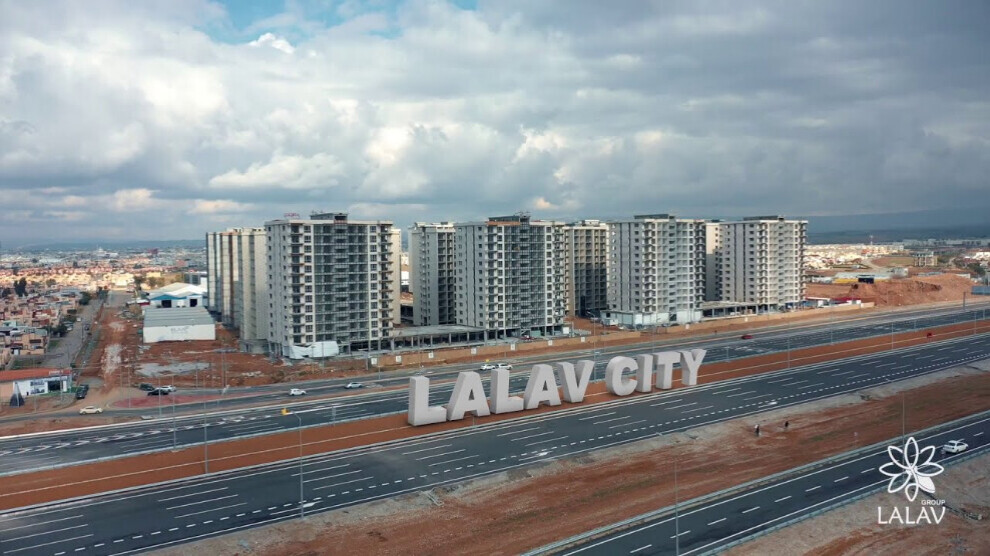Rampant corruption makes KDP elites richer
While the Kurdistan Democratic Party (KDP) remains unable to pay the salaries of public employees and peshmerga forces, pro-government businessmen and groups are getting richer.
While the Kurdistan Democratic Party (KDP) remains unable to pay the salaries of public employees and peshmerga forces, pro-government businessmen and groups are getting richer.

The economic crisis in South Kurdistan (Kurdistan regional government) is growing. Unemployment has risen significantly and citizens are protesting inadequate services and natural gas and fuel shortages. While workers, teachers, police officers and students are protesting on the streets to enjoy public services, peshmerga and civil servants are paid half of their salaries. However, the number of business corporations run by the KDP and Barzani Family and their personal fortunes continue to increase amid ongoing economic hardships.
Bwar News released a detailed report on the corruption of the Barzani Family and the KDP. According to the report, when Masrour Barzani became the prime minister of the Kurdistan regional government, lands around Hewlêr (Erbil) were purchased and a business venture called Lalav Group started to introduce huge housing projects. Zagros Media Department, Kurdistan TV, Kurdistan Democratic Party 2nd Branch and Political Bureau were taken over. The Lalav Group is tasked with the takeover in order to avoid public disclosure. The construction project launched by the Lalav Group is one of the biggest business ventures that followed the establishment of the 9th Cabinet of the Kurdistan Region under Masrour Barzani. Hecî Çolî from Duhok is the key person behind the business venture.
MILLIONS OF DOLLARS MADE AVAILABLE TO PARTY LOYALS
Backed by KDP officials, the Lalav Group continues to purchase buildings and projects that have been left unfinished by illegal means, as well as unauthorized structures. The Lalav Group also builds housing estates and apartments without considering urban planning.
Some of the business activities of the Lalav Group in Hewler are as follows:
* Dika Viyo Project: Covers an area of 20 thousand square meters and plans to construct 2400 buildings. The construction area was donated by the Ministry of Urbanization on the grounds that it belonged to Kurdistan TV.
* Var Park Project: A part of the KDP Executive Council, also known as the KDP Political Bureau in Hewlêr. The project consists of 2800 buildings.
* Lalav Airport: Located near Hewlêr International Airport, the area is also known as the 2nd Branch of the KDP. The first part of the project consists of 1100 buildings. Construction continues.
* Lalav Babylon: The project covers 600 acres of land. The largest commercial area in the Middle East is under construction. Numerous buildings, villas and playgrounds are being built. The project was introduced by the Stêrk Group.
* Vinos Tawer: A housing project planning to construct 1200 buildings. This place is close to the new Hewler.
* Lalav Star Tawer: This area is near the City of Dreams in the Ministerial District, 5 km away from Hewlêr Airport and Samî Evdirehman Park. According to the law, this area cannot be sold. Here, prices per square meter are between 1,300 and 1,500 dollars.
* Wayvi Evino Project: Covers an area of 9600 square meters. The area is 100 meters away from the Hewlêr International Airport and Samî Evdirehman Park. It was originally bought for Rudaw Television, but was sold to the Lalav Group with the permission of the 9th Cabinet of the Kurdistan regional government.
Previously, deputy Şayan Eskeri also raised concern about KDP corruption and revealed that public projects were undertaken by pro-government individuals: “Kurdistan University, Santi Life Hospital and Senterî Medya were established by public funding. However, these sites are now private property. The Ministry of Finance spent 6 million dollars on building them in 2006.”
Politician Soran Seid, former chair of the South Kurdistan Parliament's Human Rights Committee, told ANHA: “The regional government has lost its control over 5 million Kurds. Although it sells 500,000 barrels of oil per day, it owes 19 billion dollars to its employees due to the non-payment of salaries between 2014 and 2020, which has thus led to financial difficulties.”